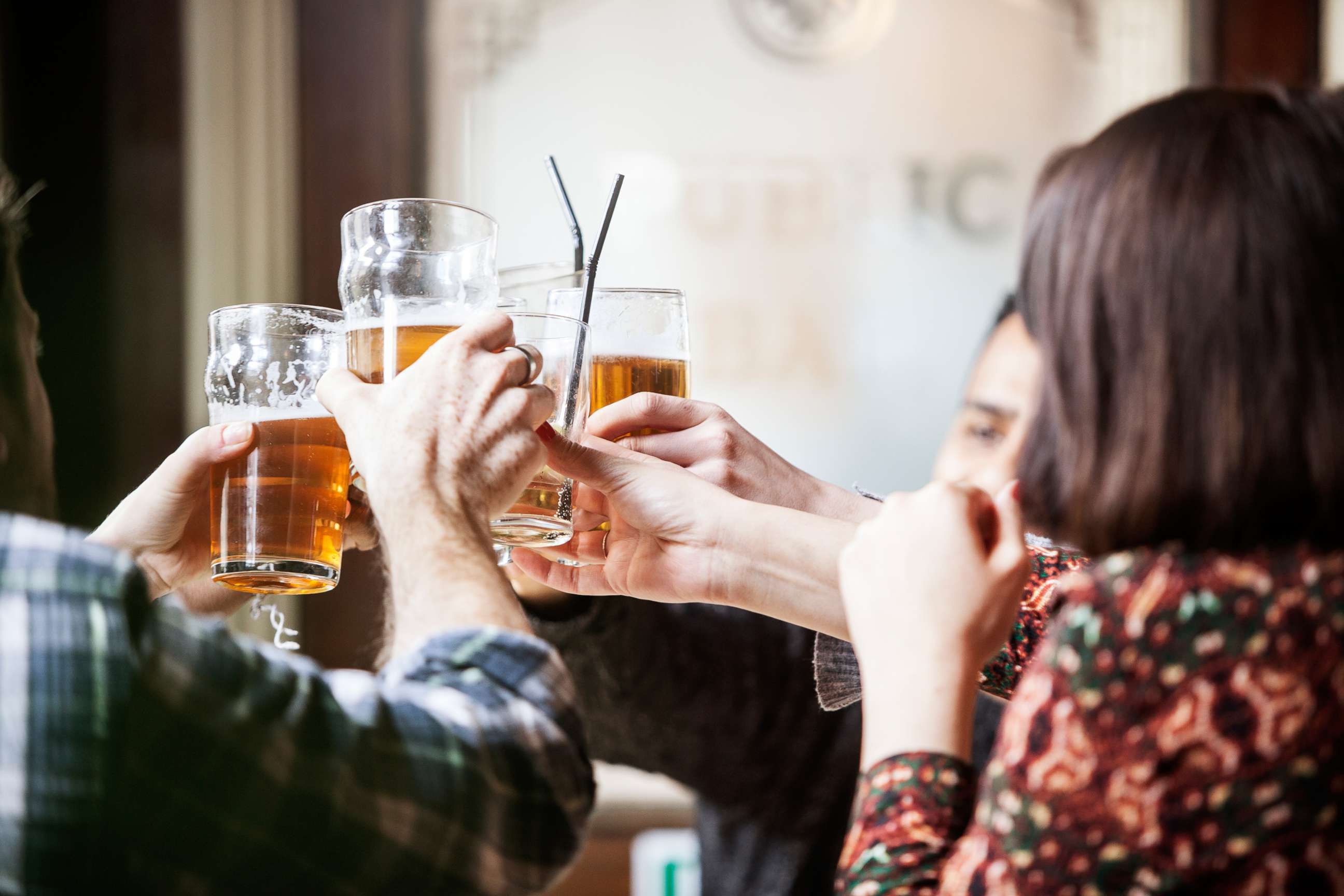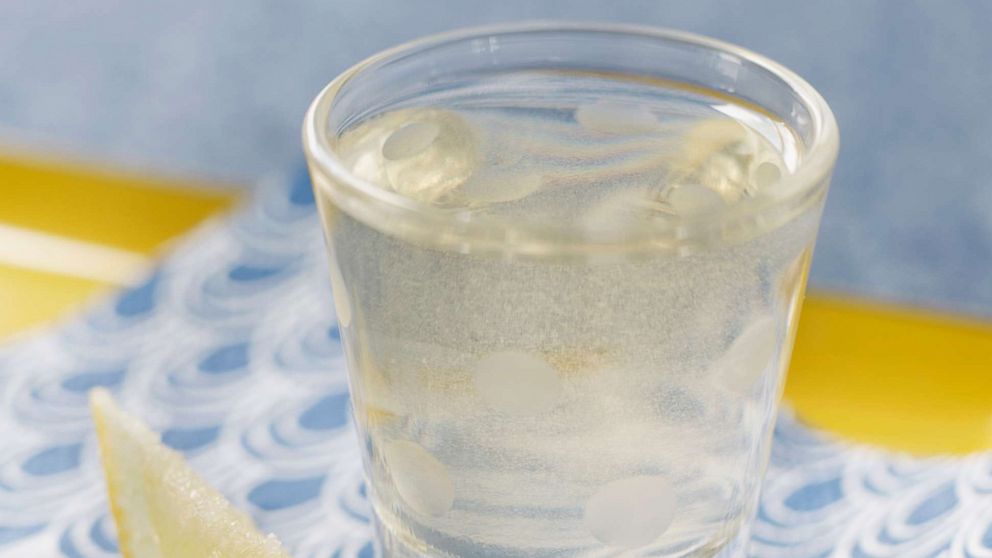Dry January: Why I'm giving up alcohol for a month
— -- Dry January, giving up alcohol for the entire month of January, has become a common New Year’s resolution and Dr. Jennifer Ashton of ABC News’ "Good Morning America" is taking on the alcohol-free challenge this month.
“It’s just a little experiment I am doing, kicking off 2018,” Ashton, ABC News' chief medical correspondent, said. “There’s a saying in medicine: Doctor heal thyself. I give this advice to women every single day, but we’ll see if I can take my advice."
Ashton spoke to "GMA" about her reasons for doing Dry January and her comments are lightly edited and transcribed below. Send us your comments and advice with #DryJENuary on Twitter.
I have decided to try Dry January and I’m inviting you guys to try it with me. Why did I decide to do it? Good question. I think more curiosity from a medical and wellness standpoint and also psychologically.
My baseline alcohol consumption I think meets criteria for “moderate," which as you guys know because I have defined it many times on the air, is seven 5-ounce servings of wine per week, or seven alcoholic servings a week.
Now, my drink of choice is clear tequila, which I usually drink on the rocks with a slice of orange. I think it’s a pretty clean drink in terms of, it doesn’t have a lot of excess sugar, I don’t throw margarita mix in there.
I would say in a normal week I probably drink once during the week if I go out to dinner, which I normally do Monday through Friday once. And then on the weekends, when I’m at hockey games, or I am out with friends Friday, Saturday or Sunday. So let’s say it is four nights a week.
My motto is two and through. I never have more than two drinks, but four times two, I am over that moderate consumption threshold. Not that it was to the excessive amount, but I kind of had a gut feeling that I was teetering around or over that moderate definition. So I decided a couple of weeks ago that I was going to do a dry month. For the record, the last time I did a “dry” anything, I was pregnant with my second child, who is now 18 years old, so it’s been a while.
From a medical standpoint, these are the things I’m curious about:
I’m curious if my skin looks better.
I’m curious to see if I lose even a pound, which is not my goal, but I’m just curious to see how literally the math kind of falls out.
I’m curious behaviorally how it’s going to feel especially in social settings. I feel like I would totally be OK if I kind of went into a cave, didn’t go out with friends, but once I am out…. When you sit down at that table and the waiter or waitress comes around, it’s like automatic, you start looking at the drink menu, everyone else starts ordering and that peer pressure can be really, really powerful.
I would love for some people to "suffer" along with me, so I have been trying to recruit some friends. So far I have one who is going to do it with me. You know what they say, misery loves company.
I am going to keep track of how it goes, how I feel. And I figure if I did it twice during two pregnancies, I should be able to do it again. (Although granted then, I had kind of a loftier motivation for doing it!)
But I think it speaks to this issue that is much more in the scientific and medical spotlight right now, which is women and alcohol consumption, and can it be too much?
I speak to my patients every single day about ways to reduce their risk for breast cancer. The easiest thing they could do would be to not drink alcohol or to greatly diminish the amount of alcohol that they consume. And very few women are willing to do that, are interested in doing that or have done it.
So it’s just a little experiment I am doing, kicking off 2018. I would love to hear your thoughts on it. I would love for you to try it with me and we’ll see how it goes.
There’s a saying in medicine: Doctor heal thyself. And so I give this advice to women every single day, but we’ll see if I can take my advice.
That being said I think there are a couple of common sense tips:
1. Tell people you are doing a dry month. If you don’t tell people and you sit down at a table and you’re the only one not ordering, you’re going to have that split second in your mind where you’re going to say, “Should I just order something?” You might get some social support if you announce to your friend group or whoever is at the table that you’re doing an experiment and you’re doing a dry month.

2. Eliminate alcohol from your home. If it’s possible to eliminate the wine or your alcohol of choice from your home fridge, do that. I can thank my father for doing that for me last night. He came over and emptied out every last bottle that was partially empty.
If you have any advice for me, I am more than interested in hearing some tips if you guys have done it.
For information and resources about alcohol-related problems and health, the National Institute of Alcohol Abuse and Alcoholism (NIAAA) is a resource. The group, part of the NIH, supports and conducts research on the impact of alcohol use on human health and well-being. Visit the NIAAA’s website here: http://rethinkingdrinking.niaaa.nih.gov/Help-links/Default.aspx.




